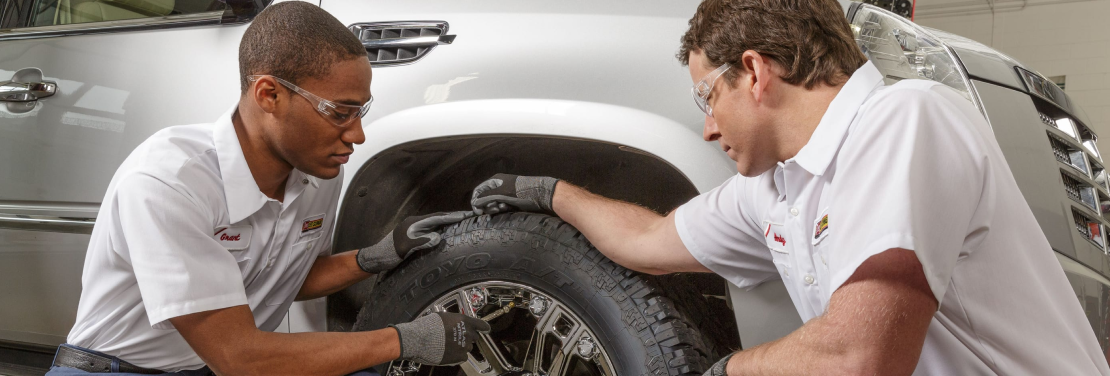Save Big with Mopar Tire Service Specials in Morris: Limited Time Offers
Save Big with Mopar Tire Service Specials in Morris: Limited Time Offers
Blog Article
Tire Service: Recognizing Tire Stress Surveillance Solutions
Understanding Tire Stress Tracking Equipments (TPMS) is an important aspect of keeping optimal lorry efficiency and safety and security when driving. With developments in automobile technology, TPMS has become a standard attribute in contemporary lorries, giving real-time details on tire pressure levels. Delving much deeper into the complexities of TPMS, one can discover the different elements that comprise this system and the importance of each in ensuring accurate monitoring. From direct to indirect TPMS systems, the landscape of tire stress surveillance varies, each with its unique set of benefits and factors to consider. Keep tuned to unwind the complexities of TPMS, from upkeep suggestions to the indisputable advantages of maintaining your tires effectively pumped up. mopar tire service specials.

Relevance of TPMS
The significance of Tire Stress Surveillance Systems (TPMS) depends on their capability to boost automobile security and performance through real-time surveillance of tire stress degrees. Maintaining the proper tire pressure is vital for making certain optimum handling, stopping, and total safety of a vehicle. TPMS supplies drivers with instant comments on any type of overinflated or underinflated tires, permitting timely modifications to be made.
Elements of TPMS
Making up various important components, a Tire Stress Monitoring System (TPMS) works as an advanced safety and security function in modern cars. The main elements of a TPMS include sensors, a control component, and a warning indicator. Sensors are commonly situated in the tire shutoff stem or connected to the wheel assembly, where they determine tire pressure and send data to the control component. The control module processes this info and activates a caution if it identifies dramatically reduced stress in any of the tires. The caution indicator, often an icon on the control panel, notifies the motorist to examine the damaged tire or tires. Some advanced TPMS models also present the actual tire pressure analyses for every tire, providing drivers with real-time info to ensure optimum tire performance and safety and security. By checking tire pressure constantly, TPMS helps stop accidents, reduces tire wear, and improves gas efficiency, making it an essential component for vehicle safety and efficiency.
Kinds Of TPMS

On the other hand, indirect TPMS relies upon the automobile's wheel speed sensors to monitor tire stress. This system detects underinflation by contrasting see it here the rotational rates of the wheels. Indirect TPMS is much less expensive than direct TPMS, as it makes use of existing sensing units within the vehicle.
While direct TPMS uses more precise readings, indirect TPMS is simpler in layout and generally needs less maintenance. Both systems have their advantages and constraints, and the selection in between them usually depends on variables such as price, lorry make, and personal preference. Understanding the differences between these 2 sorts of TPMS can assist vehicle owners make informed choices regarding tire maintenance and safety and security.
TPMS Maintenance Tips
Reliable maintenance of TPMS is necessary for making certain optimal performance and safety and security of your car. Frequently evaluating the TPMS sensing units for any type of damage or rust is important. Guarantee that the sensors are complimentary and clean from debris that can disrupt their performance. Furthermore, it is suggested to check the sensor batteries occasionally and change them as required to ensure exact readings. Conduct regular look at the tire pressure degrees and compare them with the TPMS analyses to ensure they are regular. Rectify the system complying with the maker's guidelines if there are any kind of disparities. In addition, during tire turning or substitute, make certain that the TPMS parts are handled very carefully to stop any kind of directory potential damages. Lastly, if the TPMS advising light brightens on the control panel, deal with the problem promptly by examining the tire stress and the general system for any mistakes. By sticking to these upkeep pointers, you can extend the life-span of your TPMS and enhance the safety of your driving experience.
Advantages of Appropriate Tire Pressure
Keeping correct tire pressure, as highlighted in TPMS Upkeep Tips, is vital for reaping the various advantages connected with optimal tire stress levels. Furthermore, correct tire stress makes sure also tire wear, extending the lifespan of the tires and promoting safer driving conditions. In conclusion, the benefits of correct tire stress go beyond just tire long life; they encompass improved gas check here effectiveness, boosted safety and security, much better car efficiency, and total driving convenience.
Verdict
In verdict, comprehending tire pressure monitoring systems (TPMS) is crucial for preserving ideal tire pressure and making sure vehicle security. By acknowledging the relevance of TPMS, recognizing with its elements, knowing the various types readily available, adhering to appropriate maintenance suggestions, and realizing the benefits of preserving proper tire stress, vehicle drivers can improve their driving experience and extend the life-span of their tires. Correct tire pressure is essential to efficient and risk-free lorry operation.

Report this page